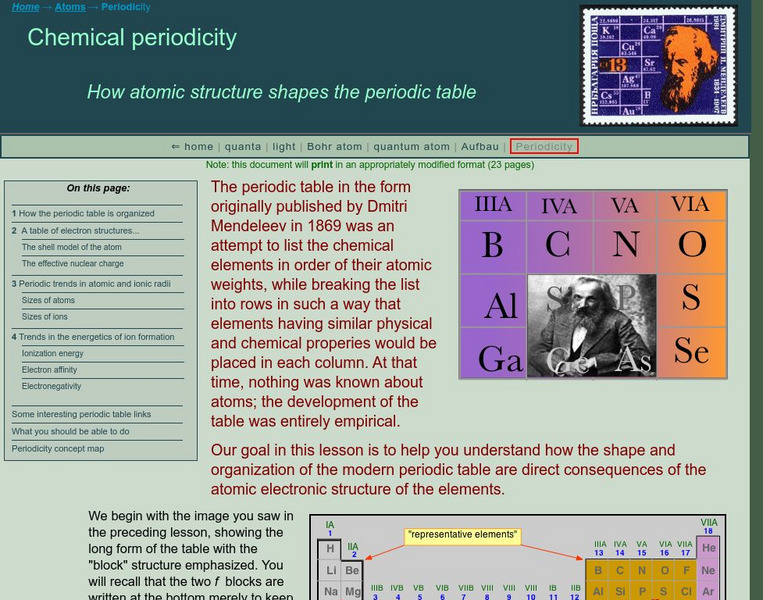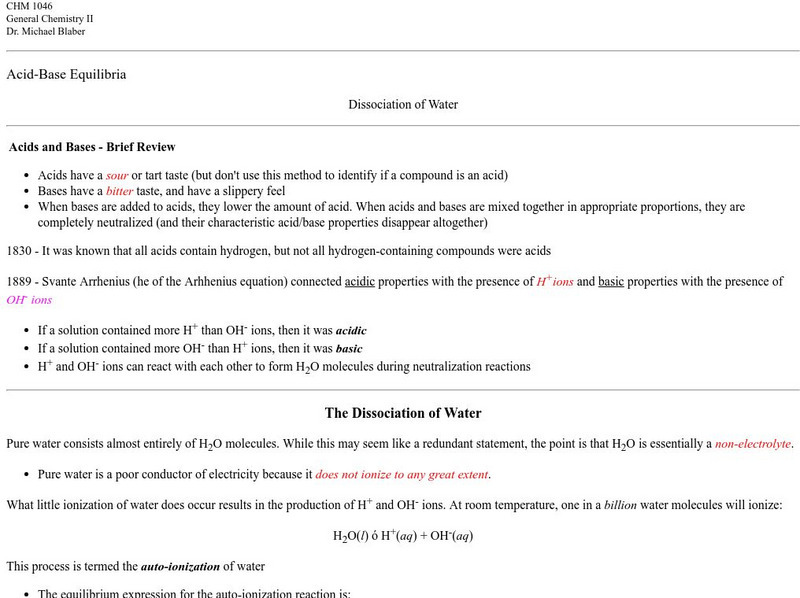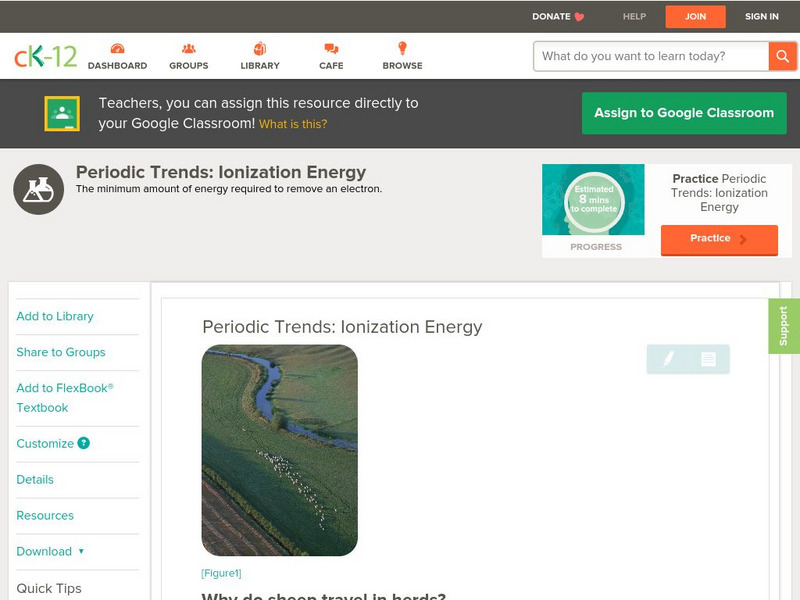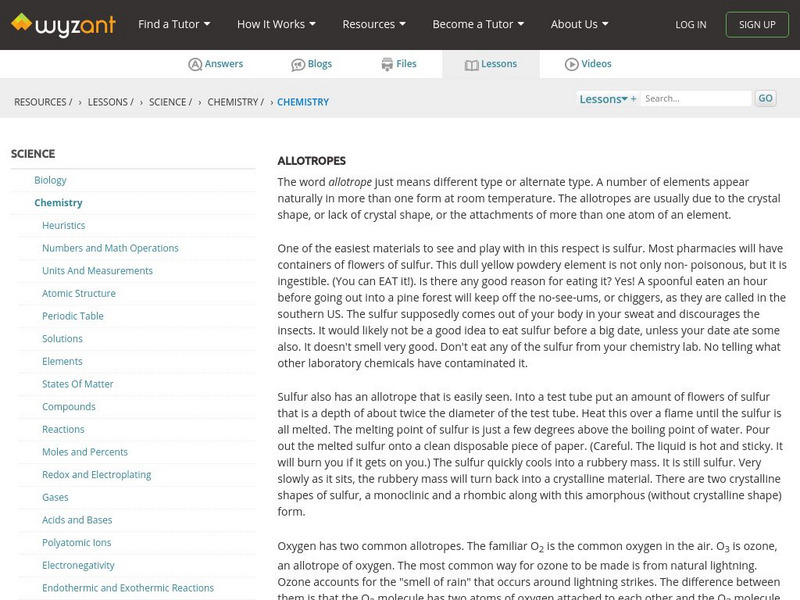University of Arizona
Ua: Chemistry Tutorial
This general tutorial begins with an explanation of the polarity of the water molecule and the effects this polarity has on the properties of water. Goes on to introduce organic molecules and has a thourough tutorial on the third page.
Simon Fraser University
Chem1 Virtual Textbook: Periodic Trends in Ion Formation
Acting as a subtopic of the General Chemistry Virtual Textbook's section on Atoms and the Periodic Table, this site discusses electron affinity and ionization energy in relation to ion formation. Charts and graphs are included as well.
Wikimedia
Wikipedia: Ion
This site is an encyclopedia article from the Wikipedia Encyclopedia on Ion. Throughout the site, links are provided for additional information. The information is somewhat in-depth, but also very factual and interesting.
Michael Blaber, PhD
Florida State Univ.: Acid Base Equilibria: Dissociation of Water
This article, which is provided for by the Florida State University Lecture notes on the dissociation of water. An interesting site to check out on the subject.
State University of New York
State University of New York: Acid Ionization
This simulation is an interactive of acid ionization.
Florida State University
Florida State University: Magnet Lab: Atmospheric Pressure Photoionization (Appi)
In the APPI technique, UV light photons are used to ionize sample molecules.
CK-12 Foundation
Ck 12: Chemistry: Periodic Trends: Ionization Energy
[Free Registration/Login may be required to access all resource tools.] Explains ionization energy, trends in ionization energy, and electron shielding.
CK-12 Foundation
Ck 12: Chemistry: Electron Shielding
[Free Registration/Login may be required to access all resource tools.] Covers electron shielding, s orbital influence on shielding, paired electron spin and shielding.
CK-12 Foundation
Ck 12: Chemistry: Strong and Weak Electrolytes
[Free Registration/Login may be required to access all resource tools.] Covers strong and weak electrolytes.
Wyzant
Wyzant: Chemistry: Terms
This lesson provides a list of chemical terms, defines them, and uses examples to describe and explain each. These include allotropes, ionic compounds, methane, carbon dioxide, alkali flats, blue vitriol, and others.
CK-12 Foundation
Ck 12: Chemistry: Periodic Trends: Ionization Energy
[Free Registration/Login may be required to access all resource tools.] Explains ionization energy, trends in ionization energy, and electron shielding.
Georgia State University
Georgia State University: Hyper Physics: Photoelectric Effect
Using graphics, words and numbers, the photoelectric effect is described and explained. Planck's theory about quanta of light is explained. Photon energies for the various regions of the EM spectrum are listed. An interactive JavaScript...
Concord Consortium
Concord Consortium: Stem Resources: Electrons in Atoms and Molecules
A module with animations, explanations, and questions about the importance of electrons in the structure of an atom. Understand the definition and locations of electrons in the atom. Explore the role of electrons in bonding, polarity,...
Georgia State University
Georgia State University: Hyper Physics: Ionization Energies
A concise description of ionization energy, and a line graph that plots the ionization energies of the first 88 elements vs. the atomic numbers.
Other
Perspectives on Plasmas: The Fourth State of Matter
An educational website dealing with all aspects of the fourth state of matter, Plasma. The site deals with basics, applications and resources. The site also includes a gallery of pictures of plasma.
Clackamas Community College
Clackamas Community College: Self Ionization of Water
A short explanation of how water ionizes by itself.
Frostburg State University
University of Frostburg: Dissociation of Water
Discussion of dissociation (self-ionization) of water and the reasons why hydrogen does not dissociate in water.

















